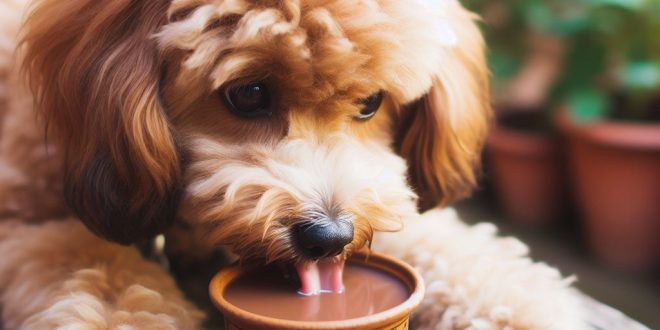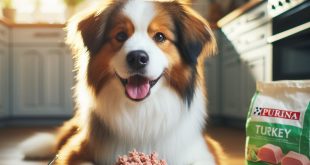Why Is My Female Dog Leaking Brown Fluid From Anus – As a dog owner, it can be concerning to notice your furry friend leaking brown fluid from the anus. This issue is more common in female dogs, and it can be a sign of an underlying problem. If you are wondering why your female dog is leaking fluid or experiencing brown fluid from the anus, you are not alone.
In this section, we will explore possible causes and available treatments for this issue. It’s essential to address this problem promptly to ensure your dog’s health and well-being.
Keep reading to discover what could be causing your female dog to leak brown fluid and how to manage this condition effectively.
SEO relevant keywords: why is my female dog leaking brown fluid from anus, female dog leaking fluid, brown fluid from dog’s anus
Table of Contents
Understanding Anal Gland Problems in Dogs
Anal gland problems in dogs can be a messy and uncomfortable issue for both pets and their owners. Anal glands are small sacs located on either side of a dog’s anus, responsible for producing an oily secretion. This secretion helps dogs identify each other’s scent when they sniff each other’s behinds. However, when these glands don’t function correctly, they can cause problems such as anal leakage or discharge in female dogs.
Causes of Anal Leakage in Dogs
Several factors can contribute to anal gland issues in dogs. One common cause is when the anal glands fail to express naturally. Certain dog breeds, such as Chihuahuas, are more prone to this problem than others.
In other cases, dogs may develop an anal gland infection or abscess. This condition can cause severe discomfort and requires immediate veterinary care to avoid complications.
Finally, some dogs may suffer from chronic anal gland problems, resulting in persistent anal discharge in female dogs or leakage. This condition requires long-term management and intervention to alleviate symptoms.
Symptoms of Anal Gland Problems
Dogs that are experiencing anal gland problems may display various symptoms, including:
- Excessive licking of the anal area
- Scooting along the floor on their hind end
- Visible swelling near the anus
- Bleeding or discharge from the anus
- Foul odor around the anal area
If your female dog displays any of these symptoms, it’s vital to seek veterinary care immediately. A professional diagnosis and treatment plan can effectively manage the problem and avoid further complications.
Identifying the Signs of Anal Gland Infection
Anal gland infections are a common problem in female dogs that can cause them to leak brown fluid from their anus. If left untreated, these infections can lead to more severe health complications. Therefore, it’s important for dog owners to know how to identify the signs of an infected anal gland.
Symptoms of an Infected Anal Gland
The following are some common symptoms of an infected anal gland in female dogs:
- Scooting or dragging the anus along the ground
- Unpleasant odor coming from the dog’s rear end
- Licking or biting the anal area excessively
- Pain or discomfort when defecating
- Redness, swelling, or discharge around the anal area
- Fever or lethargy in severe cases
Potential Complications of an Infected Anal Gland
If left untreated, an infected anal gland can cause the following complications:
- Formation of an abscess or pus-filled sac
- Rupturing of the anal gland
- Spread of infection to other parts of the body
- Chronic anal gland problems
Therefore, it’s imperative for dog owners to monitor their dogs closely and seek veterinary care immediately if any symptoms of an infected anal gland are noticed.
Treating and Preventing Anal Gland Issues
Dealing with anal gland problems can be frustrating. But the good news is that there are several ways to treat and prevent this issue from recurring.
Medical interventions
If your female dog is experiencing anal gland leakage or infection, it’s important to take her to the vet. Your vet may recommend expressing the anal glands manually. In some cases, medication may be necessary to help reduce inflammation and control infection. Antibiotics may also be prescribed if the infection has spread.
Home remedies
When it comes to home remedies, there are a few things you can try to help with anal gland issues. Adding more fiber to your dog’s diet can help regulate her bowel movements, which can prevent the anal glands from becoming impacted. You can also try giving her more frequent baths to keep the area clean and free of bacteria. Another option is to try giving your dog pumpkin, which can help promote regular bowel movements.
Preventive measures
The best way to prevent anal gland issues is by maintaining good hygiene practices. Regularly cleaning your dog’s anal area and keeping her well-groomed can help prevent bacteria from accumulating. Providing plenty of exercise and a healthy diet can also help prevent constipation, which can lead to impacted anal glands. Finally, it’s important to keep an eye on your dog’s behavior and look for signs of discomfort or anal gland issues.
A Final Thought
Dealing with anal gland issues in female dogs can be a challenging and frustrating experience. But with the right care and attention, you can help prevent these issues from recurring. Whether you opt for medical interventions or home remedies, be sure to seek veterinary care and follow up with your vet to ensure your dog stays healthy and happy.
Conclusion of Why Is My Female Dog Leaking Brown Fluid From Anus
We hope this article has provided you with valuable insights into anal gland problems in female dogs. Remember, if you notice your dog leaking brown fluid or exhibiting any of the other symptoms we’ve discussed, seek veterinary care immediately. Anal gland issues are common in dogs, but they can lead to serious complications if left untreated.
By staying informed and taking preventive measures, you can help keep your furry friend healthy and comfortable. Remember to keep an eye out for the signs of anal gland problems, and don’t hesitate to reach out to your vet if you have any concerns.
Thank you for reading, and we wish you and your canine companion the best of health!
 Treat For Dog – Brain Training for Dogs, Dog Training & Obedience Discover Treat For Dog and get your pup on the path to smarter, happier, and healthier living with brain training for dogs.
Treat For Dog – Brain Training for Dogs, Dog Training & Obedience Discover Treat For Dog and get your pup on the path to smarter, happier, and healthier living with brain training for dogs.




